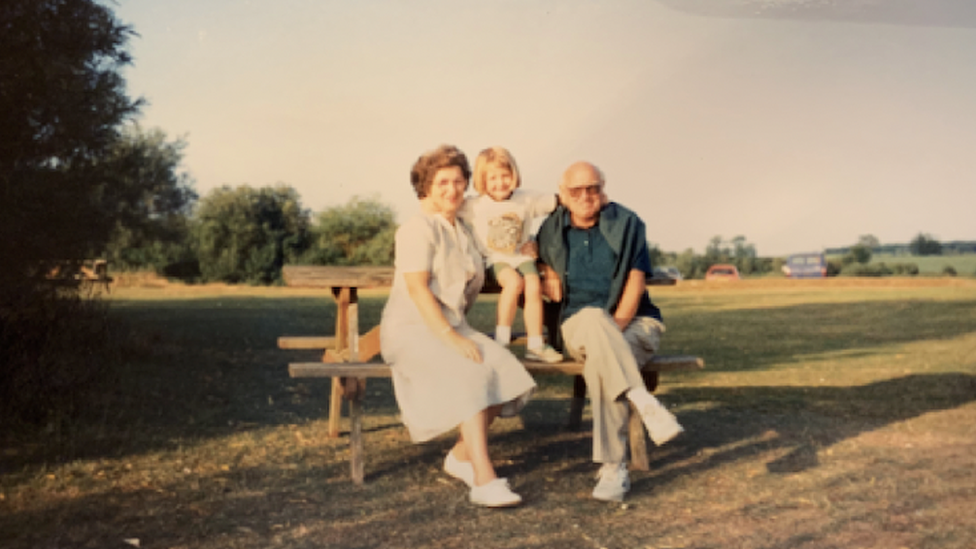Beer trial 'restoring dementia residents' identities'
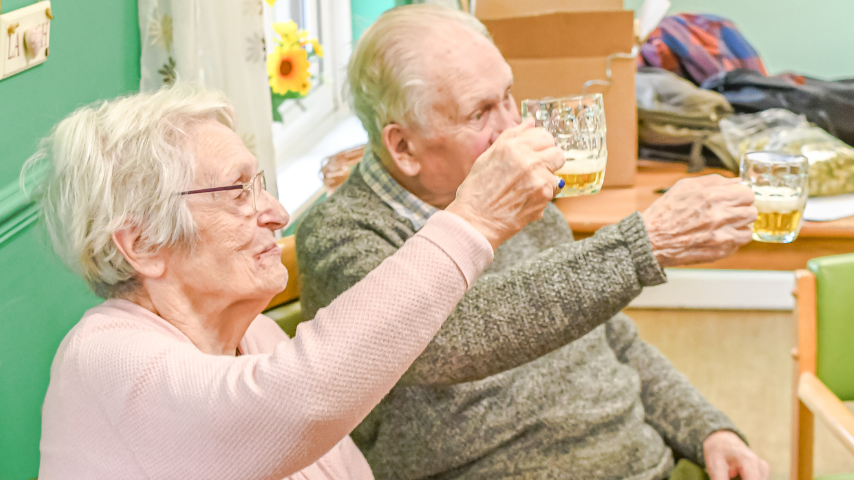
Elderly residents living with dementia and Parkinson's have been growing hops and making beer
- Published
Elderly people are "challenging perceptions" and improving their wellbeing by growing hops and tasting beer made with them with local brewers.
The Hoppiness Project set up by Alive Activities and Bristol University researchers aims to "empower and stimulate" residents who have progressive illnesses.
Residents from Meadowcare Home and Beaufort Grange in Bristol took part in the scheme, which "improved their memory and boosted their mood afterwards".
Guy Manchester from Alive Activities said making beer helped "restore some of their identities".
Mr Manchester has spent years working in care homes and gardening with people who have dementia.
"We need to challenge perceptions on what people at care homes want to do.
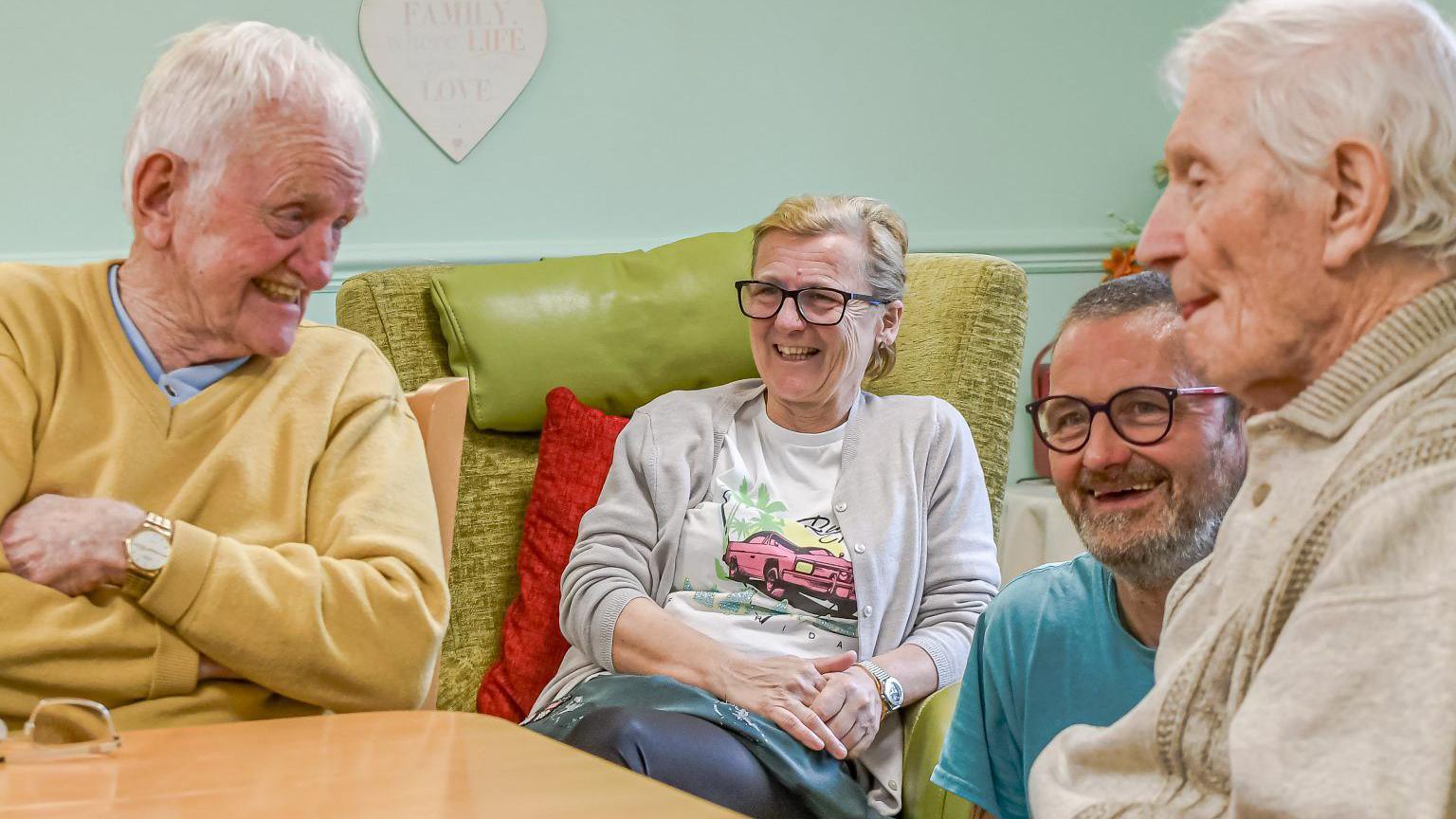
Guy Manchester said he hopes the project challenges perceptions on what people in care homes want to do
"There's a lack of understanding that there's people in care homes who have a history of wanting to be involved in meaningful activities.
"A person who I know, his mum was in a care home and they were just sat watching TV all the time - part of their identity was being ignored," added Mr Manchester, who also runs the Bristol Hops Collective.
Residents he spoke to all said they missed gardening and going to the pub.
"When they started growing and making the beer, it was like watching people blossom, you could slowly see them coming to life.
"People might not be able to remember that they did this wonderful thing the day before, but they still retain that residual good feeling," he added.
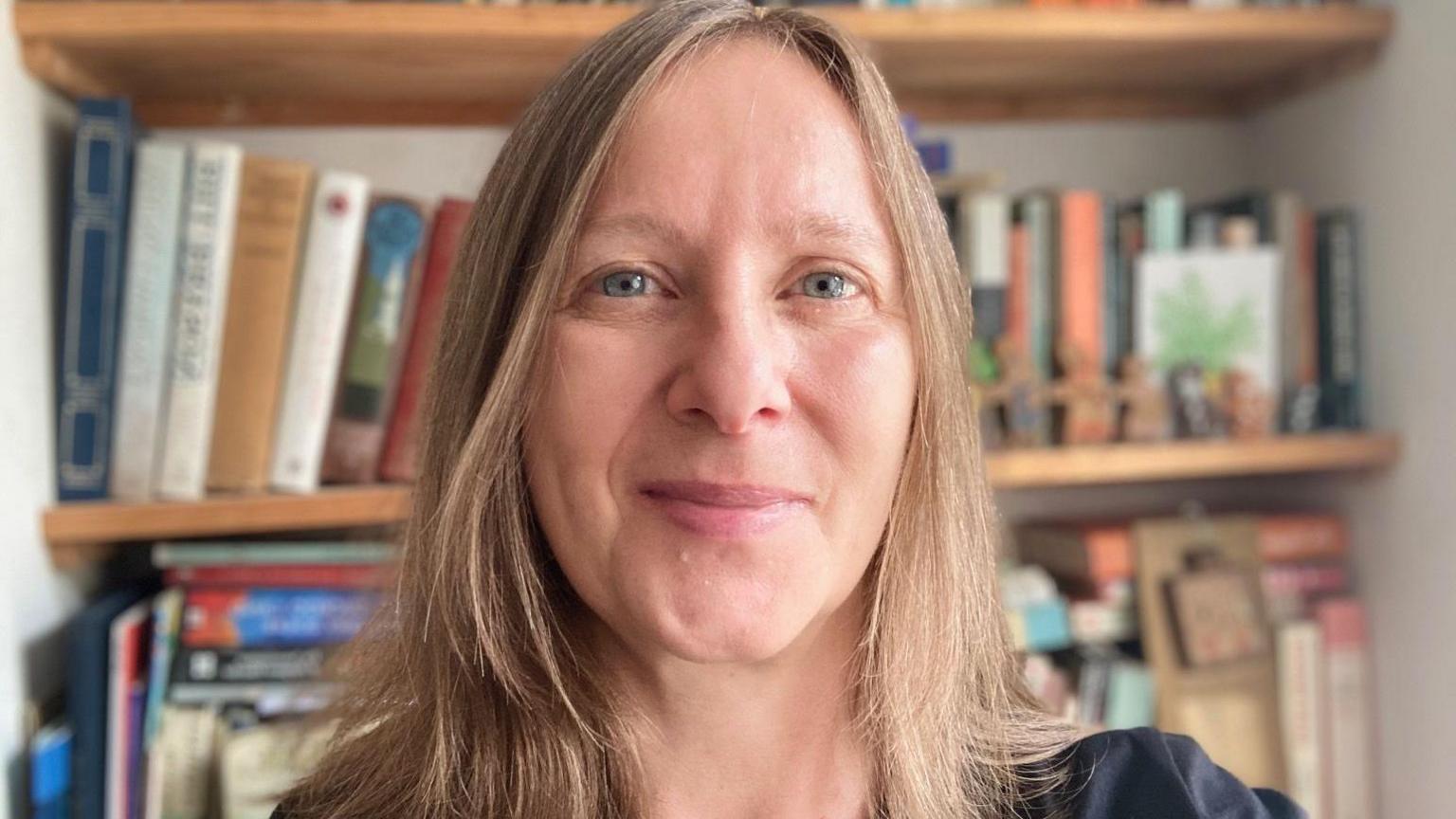
Dr Karen Gray said it has been great to see participants sharing their memories of gardening and drinking
Researcher Karen Gray said it is important to stay physically and mentally active the older we get, but explained in care homes the opportunities to do that become "diminished".
"Our sense of self and identity can sometimes diminish with that too.
"So many of us have a drink or a social drink of some kind and those environments are just part of life, that is why we wanted to include beer in this project," she added.
Researchers said it had been "really interesting" to see the effect the sessions have on the residents.
'They have pride'
"The atmosphere changes, they get really involved, they're focusing, they're concentrating.
"People start chatting with each other more and telling us about things they used to grow on their allotments - they have pride.
"It's great to see," Dr Gray added.
Organisers hope to extend the project to more charities and other groups by producing a downloadable pack, which will be available in October.
Get in touch
Tell us which stories we should cover in Bristol
Follow BBC Bristol on Facebook, external, X, external and Instagram, external. Send your story ideas to us on email or via WhatsApp on 0800 313 4630.
- Published17 February 2024
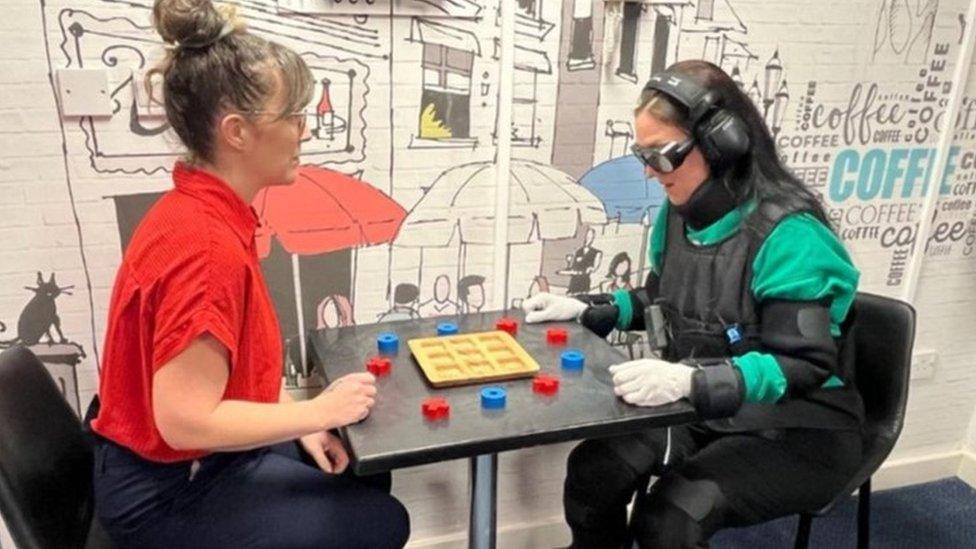
- Published22 December 2023
